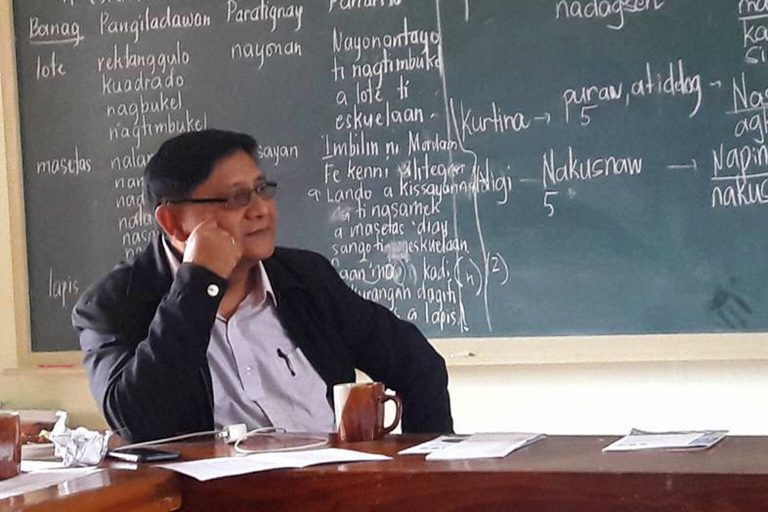By Limuel G. Habon (Bachelor of Elementary Education)
The University of Northern Philippines has co-organized—together with the University of Hawaii Ilokano Program, NAKEM California, NAKEM Consortium, Saint Louis College, Mariano Marcos State University, and LAING Filipinas—the NAKEM Dr. Julius B. Soria Lecture Series via Zoom Meeting with Dr. Aurelio Solver Agcaoili as the lecturer on the topic “The Nature of Ilokano Poetic Language.”

Prof. Aurelio Agcaoili | Photo credits to Prof. Junley Lazaga
The event started with a welcome remark by Rev. Fr. Ramon Caluza, President of Saint Louis College. In his welcome speech, he regarded all participants as co-advocates of Ilokano language studies and urged everyone to freely engage in the lecture for a fruitful discussion.
Moreover, Dr. Alvin Gaerlan, President of NAKEM California, Ms. Carmi Polendey, President of LAING Filipinas, and Ms. Trixie Soria, representative of the Soria family, also extended their wish for the productive flow of the first episode of the lecture series.
Dr. Aurelio Solver Agcaoili served as the lecturer. He is currently on the instructional staff of the University of Hawaii and has received appointments as a visiting professor at the University of the Philippines and a visiting lecturer at Saint Louis University School of Advanced Studies. His works are in the areas of indigeneity issues, philosophy, poetry, lexicography, fiction, and diasporic studies. He has received recognitions from the Palanca, Rizal Awards, Belmonte Grant, Cultural Center of the Philippines, Commission on the Filipino Language, and the Philippine Centennial Literary Prize. Dr. Agcaoili started his lecture with a question: “When is poetic, poetic?” He stated that the question aims to ponder the constitutive element of a poetic text. “When we look at the Ilokano poetic language, we need to go back to the literature of the Ilokano language,” he said.
He further discussed that the nature of the Ilokano poetic language can be something that explains and explicates or something that hides, lies, and deceives. He scrutinized that these are evident in Ilokano texts, such as letters or poems, that describe and present concepts or text that suggest or express another idea than its usual meaning. The concept of “irteng” was also associated with how the Ilokano poetic language can be stretched, just like a rubber band.
“Irteng is the kind of tension that we can see in the peculiar and unique use of a language. It is more or less like a linguistic tension. A tension in the expressive aspect of the language itself. We try to stretch it [Ilokano poetic language] like a rubber band – until to the point when it is about to snap, but it hasn’t snapped,” he stated.
Moreover, he added that the tension for poetic language can be stretched, extended, or pushed beyond the boundary, but the language should not be allowed to snap. Otherwise, it will be a pathological issue.
Dr. Agcaoili concluded that the Ilokano poetic language is slippery: transcendent as it is transcending, metaphoric and paradoxical. He articulated that poetic text is not an easy feat. After the lecture, reactions were made by Dr. Maria Lourdes Almojuela of Saint Louis College and Dr. Eleanor Belizar of the University of Northern Philippines. Both expressed their nostalgic feeling and reminisced about their past and how Ilokano literature formed a large part their childhood.
The lecture was attended by various organizations and academic institutions to tackle the Ilokano poetic language. The lecture series will be followed by a new set of topics on the following dates: “Ilokano Poetics Against the Vulgar” on September 23, “Pangngarig and the Promise of the Metaphoric” on September 30, and “Metaphors to Live By, Lives to Metaphorize” on September 30.